- Home
- Stephen Hunter
Havana Page 27
Havana Read online
Page 27
“We have a man there to block.”
“Let us hope he is good. As good as Speshnev. But few are, so, sadly, this fellow probably isn’t. I know the one. Beefy, a police type. I’ve seen pictures.”
“Yes, that’s him.”
“So if this American gets the Cuban, so be it. I hope he gets the Jew too, but if he does not, it doesn’t matter, for he has destroyed him just the same. You are happy, I am happy. But if the American doesn’t get him, then I advise you to advise your navy to intercept the vessel—it is called the Day’s End—and board it. Remove the two of them. Speshnev actually doesn’t know much, as he has been on vacation in our winter wonderland. But still, he will amuse your debriefers. As for the Cuban, shoot him and feed his body to the sharks. The Day’s End. Registered in Negril Harbor. The boat number is NC554. That’s the one. There’s your treasure. Now, you are a hero, I am a traitor, but a safe one, and that is that.”
He threw down the last of his wine, rose, and walked off.
Roger watched him go, a man sure of himself and now of his future. Roger signalled his two bodyguards to draw close, and as they approached, he thought about how quickly he could get to the embassy, how quickly he could report to headquarters, how quickly the navy could intercept the Day’s End, and where he would end up living in Berlin.
Chapter 45
There was nothing to be done. They would die or they would not die. What could be done had been done.
Speshnev, with his strong wrists and fingers, kept the boy’s face buried in the vegetation. With his knee locked into the boy’s buttocks, he pinned him to the earth. They lay in the brush, in stickers and thorns, amid snakes and scorpions, under a fiery sun on an airless day. They lay as intimately as inverted lovers, though no sexual tension was felt by either. There was too much fear for that. A slight rush of wind moved leaves against each other, a dry, crackly rubbing.
Speshnev had the discipline himself not to look, but he knew the boy lacked it, which is why he pinioned him so. You could never tell. Some men, for some reason, have a special sensitivity to another’s eyes upon them. When hiding or sneaking or crawling or penetrating, a key rule: never, ever look at the man you’re trying to evade or fool. To do that is to risk alerting him and if he’s alerted, you are dead.
They lay deep in the brambles, which snarled about them, scraping and cutting. They were surrounded in vegetation, in so far and so tight no one could believe a man, much less two, could penetrate that deep. Speshnev’s clothes were dark enough and, with his body, he covered the creamy lightness of the boy’s thin shirt. Hours seemed to pass. He would not allow the boy any movement at all, and he himself had acquired a stillness that was unto death. Many men can’t be still for very long. The blood courses, the muscles tighten, and, moreover, any impingement on the flesh increases thunderously in its sensation. Many cannot endure such a willful torture.
Speshnev could and he didn’t care if the boy could or couldn’t, the little monster wasn’t going to give himself or anyone else up.
Something stung him. Something crawled up him. Some sweat—or was it blood?—ran down from the dark bandanna about his head, tickling him as it went. He took an ascetic’s pleasure in tracking each of these discomforts. Locked savagely beneath him, the boy squeaked somehow, shuddered a bit, but could not escape the clench that bound the two together.
The soldiers were only fifty feet away now. Speshnev hadn’t looked at them for an hour, but he’d registered them in detail earlier. They had no rifles, no packs, and they had sweated wholly through their khakis in the long, fast, demanding climb upwards. Some had pistols, others had machetes. None had hats. They seemed to have recovered quickly, more quickly than he had anticipated. Possibly the officer beneath, Ojos Bellos, had chosen only athletes for this mission. The man was not quite a fool. Athletes would find their breath faster, focus their vision more sharply, commit more assiduously to the physical demands of the ordeal.
“All right,” an officer screamed in Spanish. “Another ten feet, and halt. Do not rush yourselves. Look very carefully and methodically, if I catch anyone not paying attention, I will beat him myself, do you understand?”
The line of soldiers edged forward through the heavy brush, wading through a sea of thorns.
“Lieutenant, it hurts and my feet are so delicate,” mocked a man, to much laughter.
“Lopez, you I will personally humiliate with a horsewhip. Now shut that fat mouth of yours, and do your duty.”
More laughter, but still, these boys were professional. Speshnev guessed that it was three-to-two against.
He pressed harder against the boy. A mosquito hummed in his ear. A fly bit him. A new track of sweat or blood coursed down his face.
“So what are we looking for?” asked Frenchy.
“I don’t know,” said Earl. “If I see it, I will know.”
They were about three hundred feet back down the mountain, on the sea side, having backed off the crest as the soldiers came up and established their blocking positions. Earl was locked against a tree trunk, the heaviness of the wood supporting his binoculars as he scanned, steadily, left to right.
“Suppose they don’t come this way.”
“They’ll come this way. It’s the only way.”
“How do you know?”
“Because now he has to come over under cover. So you look at the covered areas. Some are so dense a man couldn’t get through. Some are so light, a man, especially two, could easily be seen. So he’s got to come over in one of three zones, where the brush is thick enough to cover him but not so thick as to slow him down.”
“It all looks the same to me,” said Frenchy, a few trees away, arranged similarly to Earl, staring into binocs as well.
“I know that,” said Earl. “That’s why I’m doing the looking.”
Frenchy said nothing. He had nothing to say. It was hard for him to pay close attention to the monotony of the crest of the mountain where it was tangled in brush. It was green twisted into a kind of matting atop the spine of the mountain, of unvarying density and coloration.
“How the hell can you see so much?” he complained.
Earl didn’t reply. He was too busy looking.
“Maybe he won’t even come this way. Maybe he’ll go parallel along the mountain to some other spot, and maybe go over tonight. He saw those troops, too. Maybe he had time to get the hell out.”
“Then what’s he do?”
“Well, I don’t know. Works his way to Havana.”
“Havana’s four hundred miles away.”
“Goes back to Santiago.”
“Filled with soldiers and people who’d sell him out in a second.”
“Maybe he just hunkers down in a cave.”
“This kid? With his sense of importance, his conviction of specialness? He’s going to hide in a goddamn cave?”
“Well, what’s here for him?”
“The boat.”
“Well, we’re still not sure there is a boat.”
“No,” said Earl, “you’re the only one who isn’t sure there’s a boat.”
After a bit Frenchy turned around to regard the deep blue Caribbean, cupped in the arms of a bay, but from this height also yielding a vision of horizon. A tawdry wooden craft seemed to be meandering about, with dirty sails, dragging some fishing netting. A negro crew struggled to look lively on its raggedy, narrow deck.
“Oh,” said Frenchy. “I hadn’t noticed it.”
“Yeah, well, no fishing boat runs that deep in the water and it don’t head in to shore, particularly on the one place the map shows is deep enough for it to get in real close by accident. That’s the 4 P.M. bus out of here.”
The boot was American. He had seen them in the war, toward the end, in the false peace before he was re-arrested, that one strange month of May 1945, when Americans and Russians mingled freely in the rubble of the Third Reich, and one world seemed gone forever and a new one, a better one, aborning from the destruction and the
vodka.
The Americans made fine boots. Unlike Russian boots, which were simply bags of unfinished leather sewn brutally to a sole in the approximately appropriate shape, the American boot was designed exactly to the contours of the foot, it was drawn tight by a netting of laces, it never slipped off or grew wobbly and if lost would be replaced in minutes. Pity the poor Soviet soldier who lost a boot; he’d go without until…well, until.
Speshnev had ample opportunity to study this boot, particularly. It was seven inches from his eyes. It was planted firmly against the rocky ground by a private in the Cuban infantry, presumably a stout farm lad, judging by the evident stockiness of his ankle and the length and breadth of the foot. He put it where he put it, which was just in front of Speshnev’s face and that was, actually, quite a lucky thing. Had he placed it closer, he might have stepped on Speshnev’s face, felt the give of flesh beneath, and blasted away with the Star pistol he brandished. Had he been farther, he might have had a good angle through the dense thickets of bramble and thorn and caught a glimpse of the non-organic, and done the same ugly deed with his pistol.
But as it was he was simply set against the earth, and Speshnev, on top of his frozen ward, lay concentrating on his boot because he could look no other place. What he could hear sounded like an ax blade whizzing close by, hungry for his scrawny neck. But it was actually the blade of the machete the young soldier wielded as he probed and flicked and stabbed, searching for the bodies of hiding men, unaware utterly, for now, that those men were literally at his feet.
The whisper of the blade waved magically through the brush, and Speshnev felt its breeze, and particles of leaf and branch its edge liberated, as they drifted down upon him.
Then silence.
Then the sound of rush, as an artillery shell comes in, the one that gets you—he knew this, having been blown up twice, once in Spain, once outside Novograd—and the blade struck earth savagely but two inches from the end of his nose, and vibrated ever so gently. The soldier was stabbing randomly into the brush about his feet.
Beneath, the boy squirmed; but Speshnev had iron fingers about his mouth, crushing his lips to deadness, so he could not involuntarily give a coward’s squeak and reveal them.
The blade probed, came closer, and withdrew.
“All right,” the sergeant called. “Move forward another ten feet. He’s got to be here somewhere.”
“I think this greaseball has shit himself to nothingness,” came a jeer, followed by laughter.
“If so, you’d smell the shit. I think he’s somewhere down the hill and he’s put a bullet in his greaseball head.”
The soldiers moved onward. It would be another hour before they were far enough away for Speshnev to move, and then he’d only have a few minutes before the main body of troops got up here, with the dogs, and picked up the trail ahead.
“Are we safe?” muttered the boy, when at last Speshnev released his iron grip.
“Hardly,” said the Russian.
“They’re over,” said Earl.
“How do you know? I didn’t see a thing.”
“The birds. A flock of ’em just blew out of the brush, fast and sudden.”
“Earl, birds fly out of the jungle all the time.”
“When they take off on their own, the head Johnny goes first, his lieutenants follow, then come the privates and then the gals. When they all blow out at once, they’ve been startled.”
“Maybe it was a boar or a coyote.”
“Ain’t much moving about a forest during daylight, and with all them soldiers over there, there’d be even less. No, it’s them.”
Earl slipped the binoculars back into their case. He picked up the rifle, ran a last check over it, unlocking and easing back the bolt to double-check that a .30–06 nested comfortably in the chamber, then quietly relocked it, rechecked the safety. By this time, Frenchy had come over and kneeled next to him with his carbine at the ready.
“Okay,” said Earl, “he’s got to go left because it’s thinnest there. He’s got to get down fast because that boat is getting in close and his meet-up is probably scheduled for 1600 hours and that boat just can’t linger there forever, not with all the naval activity this close to Gitmo. He’ll go down left, there’s a natural fold he’ll be in, then they have to avoid that open field, so they’ll have to detour around that before they reach a last line of trees. I’m betting there’s a creek over that way, ’cause you can see the trees are greener, they’re getting more water.”
“I didn’t see that.”
“No, you didn’t. Anyhow, I have no way of knowing which way they’ll go around that field, but I do know they won’t walk down the middle of it. I’m betting men racing down a hill ahead of dogs and troops are going to be hellish thirsty and the temptation of that water will be too much, since they have to go that way anyhows. So that’s where they’ll head. And that’s why we have to be there first. He’ll pick up we’re on him if we’re still moving into place as he gets there.”
“Sounds good to me,” Frenchy said sportily.
“It don’t matter how it sounds to you,” Earl replied. “That’s how we’ll do it.”
In many ways, coming down is worse than going up, especially if speed is an issue.
Speed was an issue.
Speshnev could see the trawler just a few hundred yards off the beach, yet it was still half a mile away—downhill—and the craft couldn’t linger there forever. He knew he had to move them quickly.
But that meant his muscles and the boy’s had to work against gravity and momentum, always on the tippy, tippy edge of disaster, their legs buckling in pain as the fibers clenched in exactly the opposite way as they’d clenched when climbing.
He heard the boy huffing and puffing beneath, and there was an edge of panic to all that labored breath. Once, already, the boy had lost control, and gone shooting by him, hellbent on destruction, on a broken leg or shattered ankle, and Speshnev had grabbed him and a chunk of brush simultaneously and guided them to a slow-down and then a stop.
“I can’t go any further.”
“If you value your eyes, you’ll stop complaining and start moving.”
“Oh, Christ,” said the boy.
“Yes, call to Christ, but whomever you call to, get going.”
“I am so thirsty. I have dust in my throat.”
“There’s a whole ocean out there for you.”
Speshnev looked back. As yet no dogs had crested the hill, but it could happen at any second, and here, where the forest was thin and rocky, where their feet kicked up puffs of dust and shale, they’d be easily spotted and brought under fire. And under fire, there’d be no escape. The Cubans weren’t any kind of shooters, but there were enough of them, and their fusillade would either bring down the runners dead and wounded, or pin them for more leisurely fates.
“Go, go.”
Off they ran, trying to control the wildness that built in their limbs as they rushed down, fast but not too fast, close to the edge but not over it.
The boy gasped in agony, and even the mighty Speshnev, escape artist and ambush master, assassin and agent, guerilla and infantry commander, had to admit this was the most difficult moment in his long war against the forces of darkness. His ankles ached in the effort and the body’s fear undercut everything. He didn’t think they’d make it, not without a bad fall and if the fall were bad enough, it could end them. And the boat was so close.
The boy collapsed, heaving.
“I can’t go on. I’m spent. Leave me.”
“Stop it. I don’t have that choice.”
“I’m gone, blown, finished. I have no—”
“Look, ahead, beyond the meadow. Do you see it?”
“The boat? It could be miles away, that’s how little chance I have of—”
The dogs barked. Speshnev looked up and saw three of them, unleashed, against the crest. They howled to indicate they’d picked up the scent and waited patiently for their masters and permission to bo
und down the hill.
The boy was beyond caring.
“Not the boat,” Speshnev said. “No, look down there, just beyond the field. See where the trees are so much greener? Water. There’s a creek bed there. We’ll head there, we can make it before the men get over the top. Water, Castro, it’ll revive you. Once you get the water, you’ll recover instantly. You’re simply dehydrated, that’s all. Come on—”
And he lifted the boy up, feeling the tremors of surrender in the lax musculature and the heart beating desperately, the lungs sucking over dried lips for oxygen, and never quite getting enough. “Come on, now, just fight it another two hundred yards, and there’s salvation!”
Frenchy had never believed in it. Not for a second. It seemed some fantasy to him, some improbable crusade that this Davy Crockett from Arkansas were pulling on him. But then he saw them: two men, one of them demonstrably the young political leader Castro, rushing helter-skelter downhill exactly where Earl had said they’d come, their arms windmilling for balance as they fought the pull of gravity, both ashen and desperate, both craven with thirst.
If he felt any triumph, Earl didn’t show it. His manner was glum, matter-of-fact, professional. Now was time for the shooting.
Earl unslung the rifle. They were about two hundred yards out, on a slight ridge, and Earl had sited them so they had a good line of fire straight onto the widest part of the creek, where a beaten man could drown his face in sweet green water and suck it down, and cool his weary, booted feet. No limbs, no brush, nothing interceded to deflect the bullet. It was a simple matter for someone as sure a shot as Earl.

 Point of Impact
Point of Impact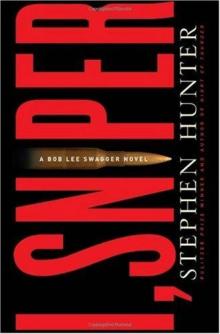 I, Sniper
I, Sniper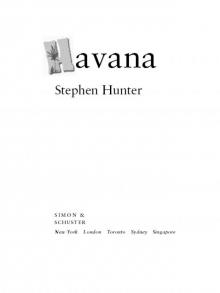 Havana
Havana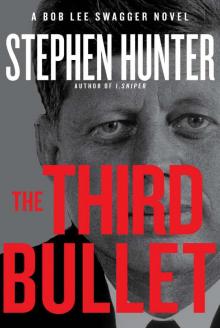 The Third Bullet
The Third Bullet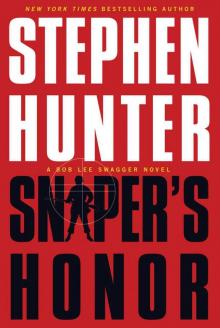 Sniper's Honor: A Bob Lee Swagger Novel
Sniper's Honor: A Bob Lee Swagger Novel Dirty White Boys
Dirty White Boys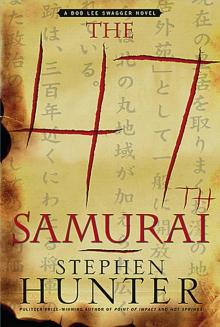 The 47th Samurai
The 47th Samurai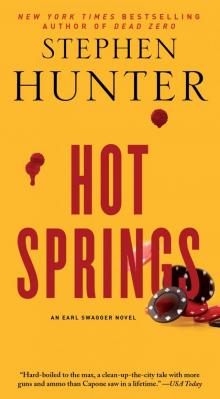 Hot Springs
Hot Springs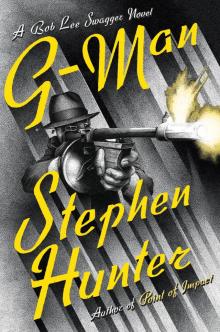 G-Man
G-Man Black Light
Black Light Time to Hunt
Time to Hunt The Day Before Midnight
The Day Before Midnight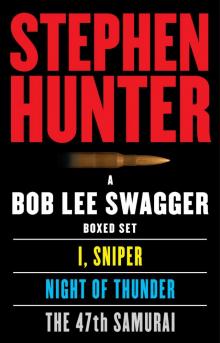 A Bob Lee Swagger Boxed Set
A Bob Lee Swagger Boxed Set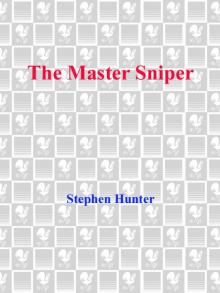 The Master Sniper
The Master Sniper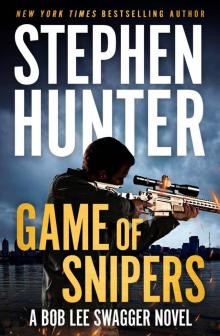 Game of Snipers
Game of Snipers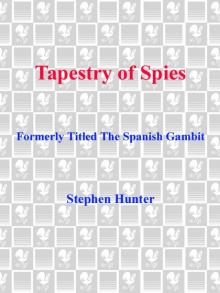 Tapestry of Spies
Tapestry of Spies Citadel
Citadel The Second Saladin
The Second Saladin Stephen Longacre's Greatest Match
Stephen Longacre's Greatest Match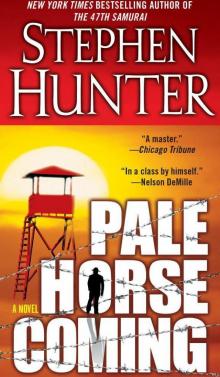 Pale Horse Coming
Pale Horse Coming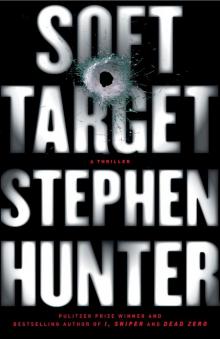 Soft Target
Soft Target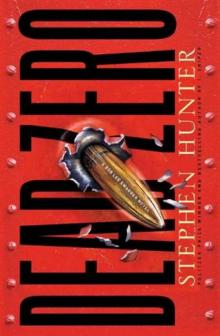 Dead Zero
Dead Zero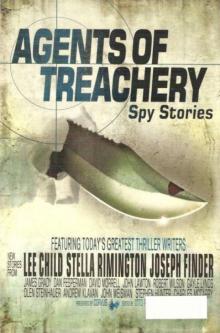 Casey at the Bat
Casey at the Bat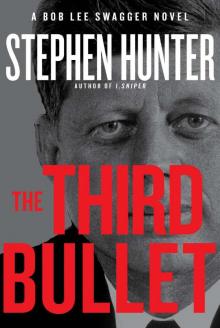 The Third Bullet bls-8
The Third Bullet bls-8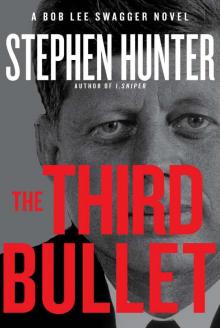 The Third Bullet: A Bob Lee Swagger Novel
The Third Bullet: A Bob Lee Swagger Novel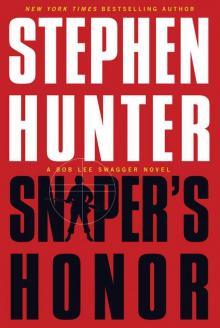 Sniper's Honor
Sniper's Honor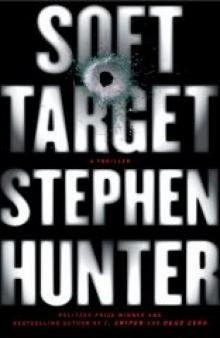 Soft target rc-1
Soft target rc-1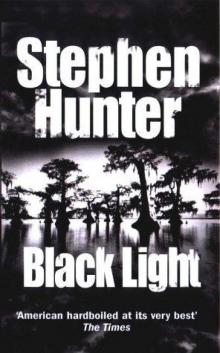 Black Light bls-2
Black Light bls-2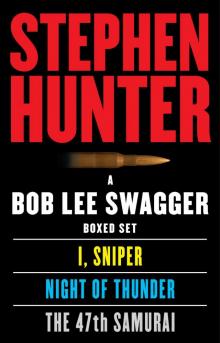 A Bob Lee Swagger eBook Boxed Set: I, Sniper, Night of Thunder, 47th Samurai
A Bob Lee Swagger eBook Boxed Set: I, Sniper, Night of Thunder, 47th Samurai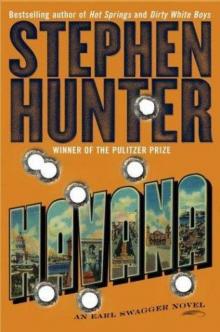 Havana es-3
Havana es-3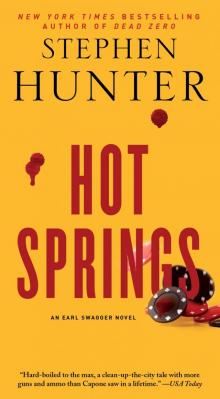 Hot Springs (Earl Swagger)
Hot Springs (Earl Swagger)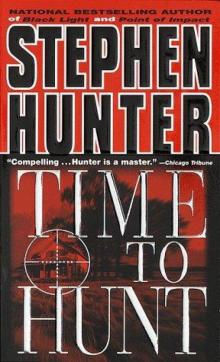 Time to Hunt bls-1
Time to Hunt bls-1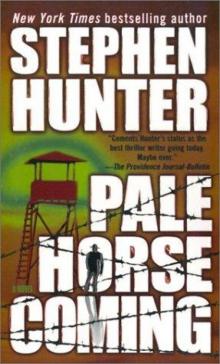 Pale Horse Coming es-2
Pale Horse Coming es-2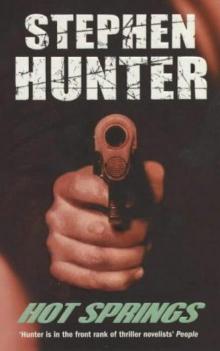 Hot Springs es-1
Hot Springs es-1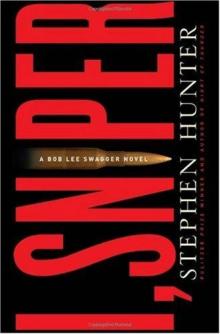 I, Sniper: A Bob Lee Swagger Novel
I, Sniper: A Bob Lee Swagger Novel